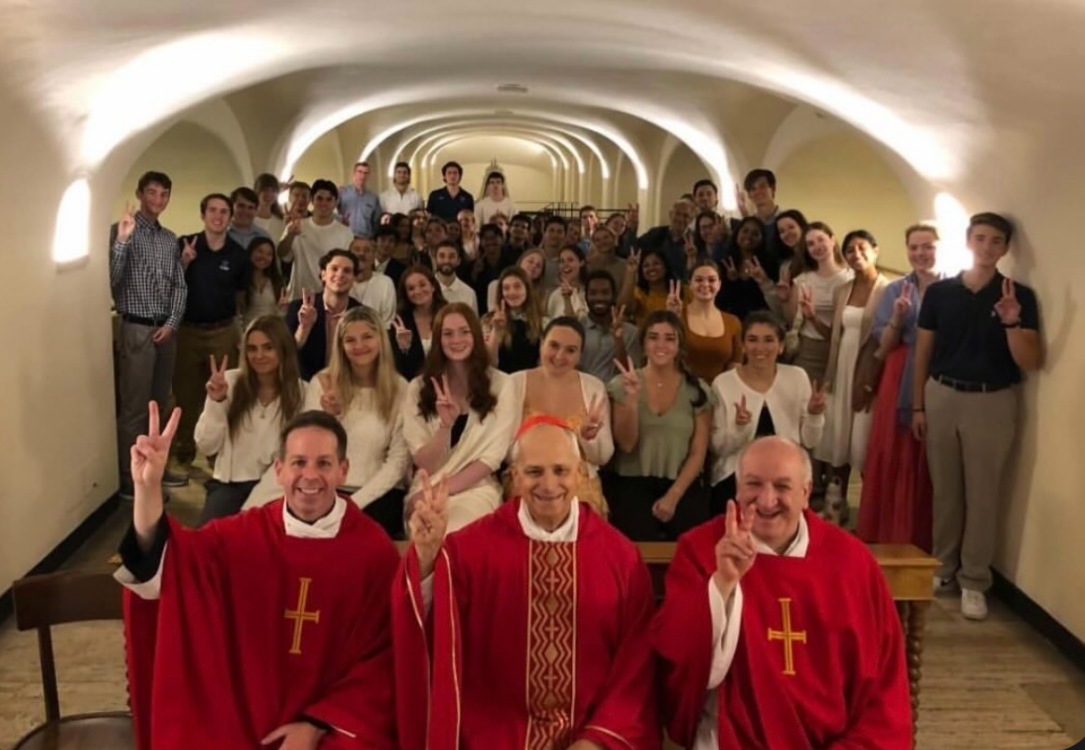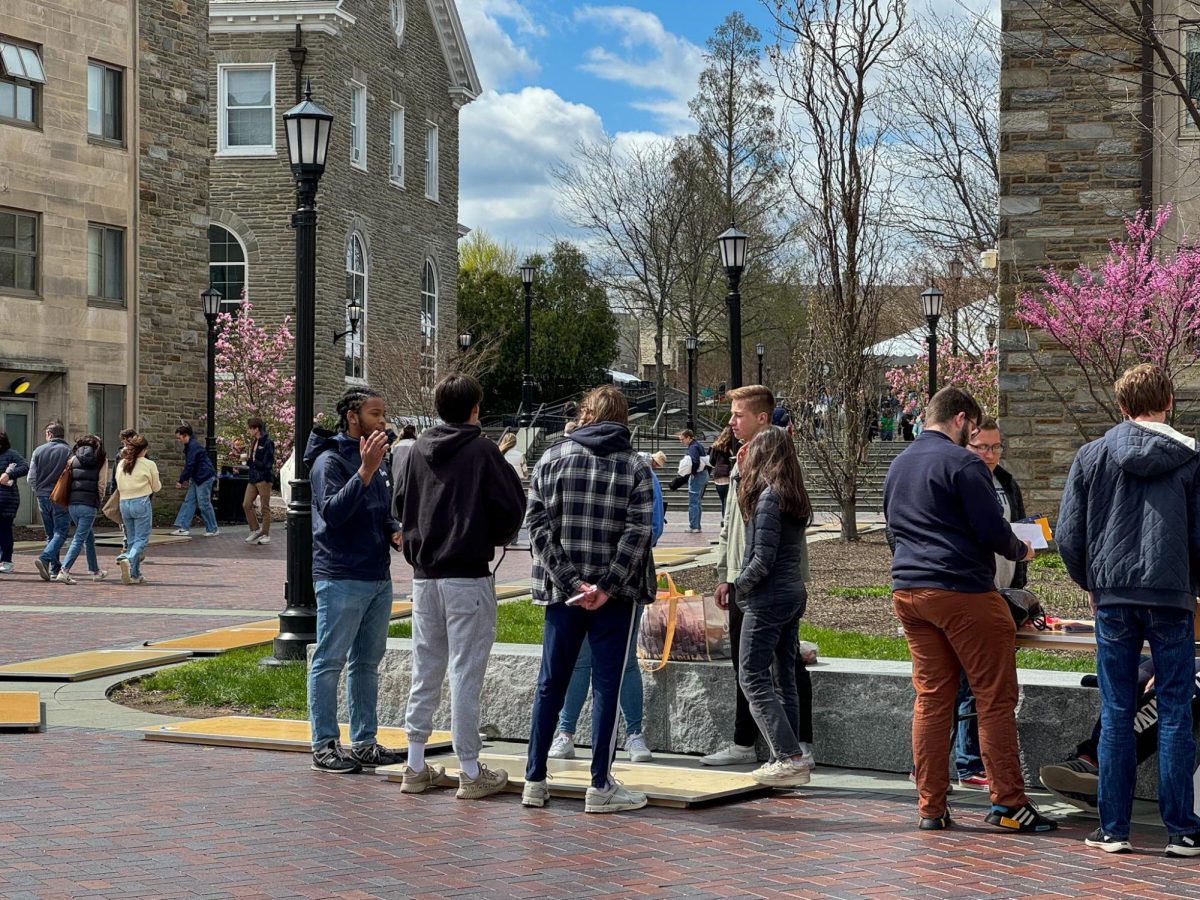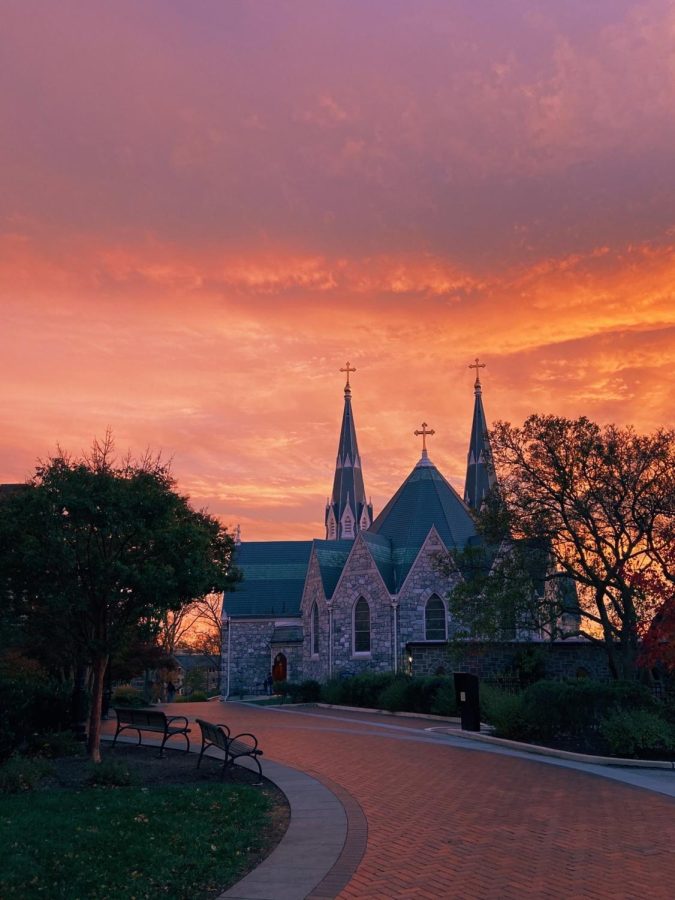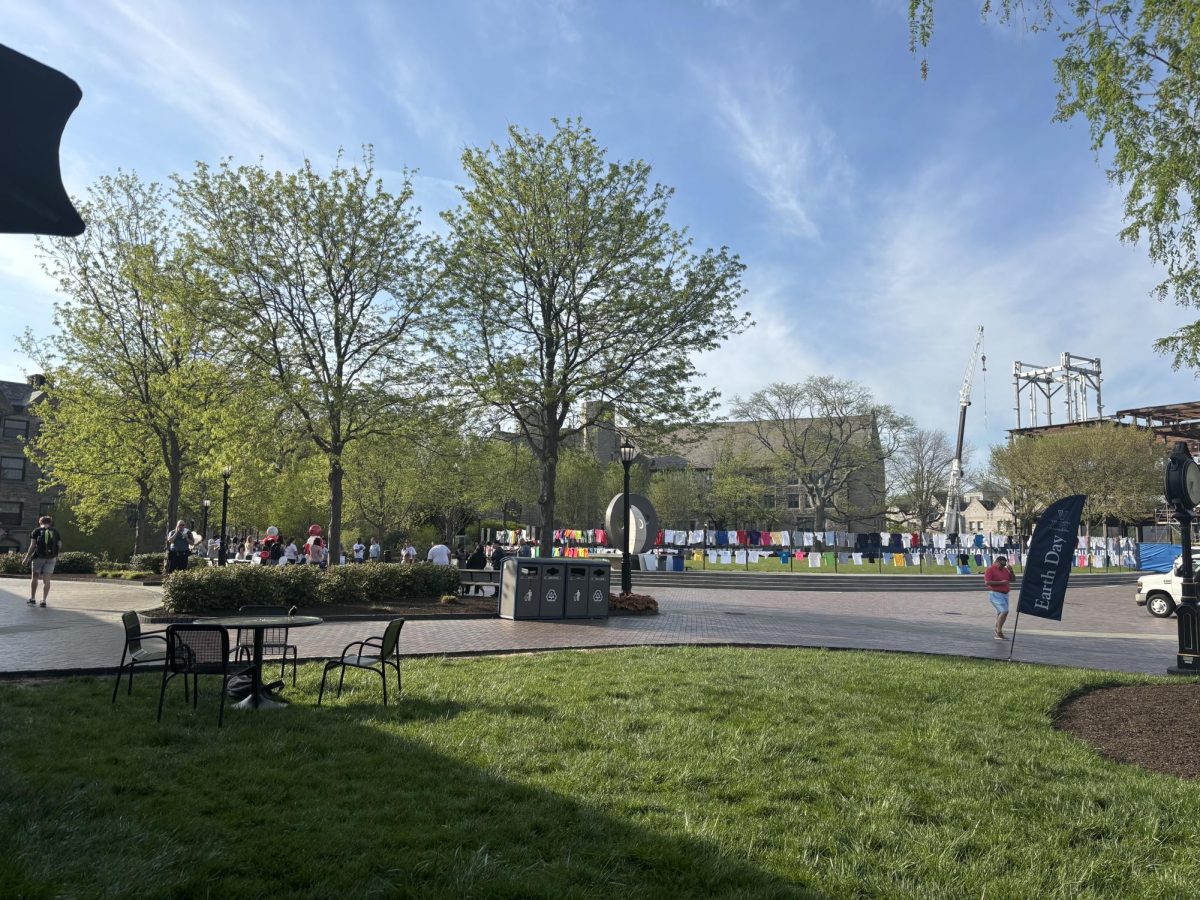French Journalist Joseph Confavreux of the news site Mediapart stopped by Villanova University on Nov. 4 as a part of his nationwide tour to discuss French interest in the American election. Confavreux arrived at a critical time for the state of Pennsylvania, simultaneous with the Kamala Harris’s rally on the Philadelphia Art Museum steps.
Confavreux has worked in the journalism industry for almost 25 years, beginning his career in Radio France, a public national radio, as a part of their France Culture program. In 2011, he was offered a position at Mediapart, which is an independent online newspaper created by former editor-in-chief of Le Monde Edwy Plenel. What makes Mediapart unique is that they do not accept any advertisements on their website, and rely solely on their subscribers, hence the slogan “only our readers can buy us.”
Confavreux sat down with Villanova French professor François Massonnat to examine the French perspective on the 2024 election
“We feel the importance of this election because it concerns not only the United States, but those abroad as well,” Confavreux said.
Europeans as a whole are watching the American presidential election unfold with much anticipation. The stakes are incredibly high in regards to international diplomacy, especially with the ongoing conflicts in Ukraine and Palestine.
“I think it’s ambiguous because if Harris wins, it would be like business as usual between the United States and France and Europe, but with Trump everything is unpredictable,” Confavreux continued. “[Trump] seems to intend more of a political rupture than he did in 2016.”
There is much concern especially regarding how a second Trump presidency would affect European defense and the North Atlantic Trade Organization (NATO), the latter of which Trump has suggested retreating from in the past.
The United States election season seems like a great spectacle to the French. However, solely viewing American politics in this way neglects the severity of the race.
“[The French] can have a tendency to caricature the United States election,” and in his work, Confavreux tries “to explain for a French audience what are the stakes in America.”
Massonnat emphasized the disparate understanding of American politics within the United States, which makes explaining the system to a foreign audience even more difficult.
“[The election] is not easy to summarize and to boil down, it doesn’t mean the same thing to someone who lives in Arizona versus Maine or someone in New York City and Iowa,” Massonnat said.
Bias and misinformation in mass media also does not mend the discrepancies in rhetoric about the election. Compared to French politics, it is understandable why the French watch American politics for entertainment. For example, in France, political ads endorsing a candidate are not permitted on any public radio or television.
“We have stronger public information at work which is much more regulated, and during the election they are obliged to give the same time for each candidate so there is a balance,” Confavreux said.
Confavreux has visited several other crucial election hotspots during his tour of the United States. He stopped at Howard University in Washington D.C., Kamala Harris’s alma mater, and reported on the significance of historically-Black colleges and universities (HBCUs) for a French audience who are largely unfamiliar with HBCUs. After a few more stops, he attended a Donald Trump campaign rally in Detroit, Michigan. Confavreux interviewed some of the attendees of the rally.
“What was more surprising for me was [Trump supporters] talk as a minority, oppressed, and threatened by the state, and they had almost the same kind of discourse that I hear from democrats about a fear of tyranny,” Confavreux said.
Confavreux also highlighted the ambiguity surrounding this year’s election due to mail-in ballots and legal challenges, the former of which are not used in French elections.
“There is a fog over the outcome of the election due to the political polarization, and how we won’t know when the results of such an important wil be known,” Confavreux said.
Confavreux’s visit was very informative, and allowed French students to hear from a primary source about French media and politics.
“I think any opportunity to learn more about politics and government in our country is a valuable resource for all students,” freshman psychology and French double major Kathryn Davis said. “But I think especially for French students, it was very interesting to learn about political culture in France as well as the French view on American politics.”
To read Joseph Confavreux’s work during his trip to the United States and much more, visit Mediapart,fr.






